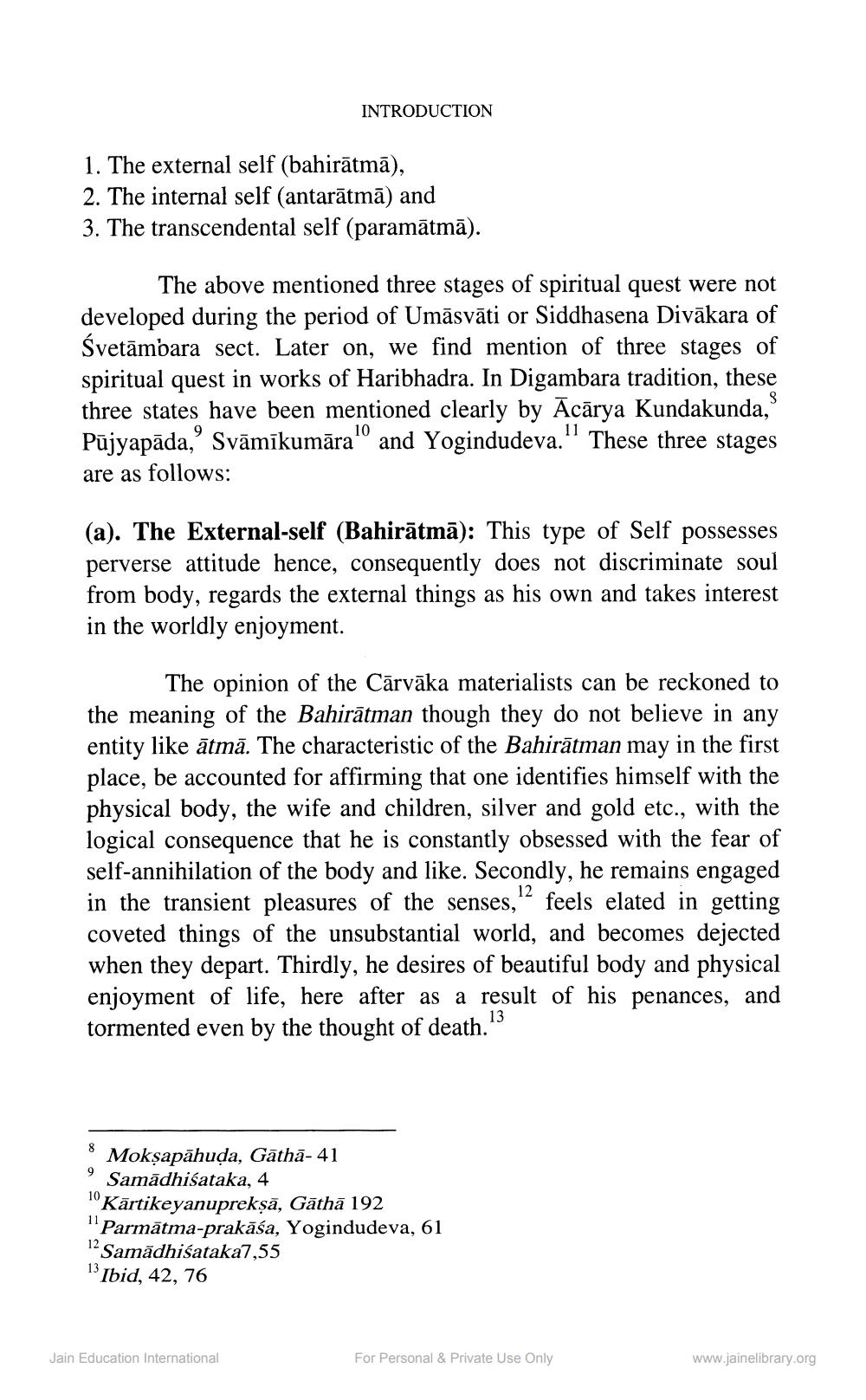________________
INTRODUCTION
1. The external self (bahirātmā), 2. The internal self (antarātmā) and 3. The transcendental self (paramātmā).
The above mentioned three stages of spiritual quest were not developed during the period of Umāsvāti or Siddhasena Divākara of Śvetāmbara sect. Later on, we find mention of three stages of spiritual quest in works of Haribhadra. In Digambara tradition, these three states have been mentioned clearly by Ācārya Kundakunda, Pūjyapāda,' Svāmīkumāra" and Yogindudeva." These three stages are as follows:
(a). The External-self (Bahirātmā): This type of Self possesses perverse attitude hence, consequently does not discriminate soul from body, regards the external things as his own and takes interest in the worldly enjoyment.
The opinion of the Cārvāka materialists can be reckoned to the meaning of the Bahirātman though they do not believe in any entity like ātmā. The characteristic of the Bahirātman may in the first place, be accounted for affirming that one identifies himself with the physical body, the wife and children, silver and gold etc., with the logical consequence that he is constantly obsessed with the fear of self-annihilation of the body and like. Secondly, he remains engaged in the transient pleasures of the senses," feels elated in getting coveted things of the unsubstantial world, and becomes dejected when they depart. Thirdly, he desires of beautiful body and physical enjoyment of life, here after as a result of his penances, and tormented even by the thought of death."
Mokşapāhuda, Gāthā-41 9 Samādhisataka, 4
Kārtikeyanuprekṣā, Gāthā 192 "Parmātma-prakāśa, Yogindudeva, 61 12 Samădhisataka7,55 13 Ibid, 42, 76
Jain Education International
For Personal & Private Use Only
www.jainelibrary.org




